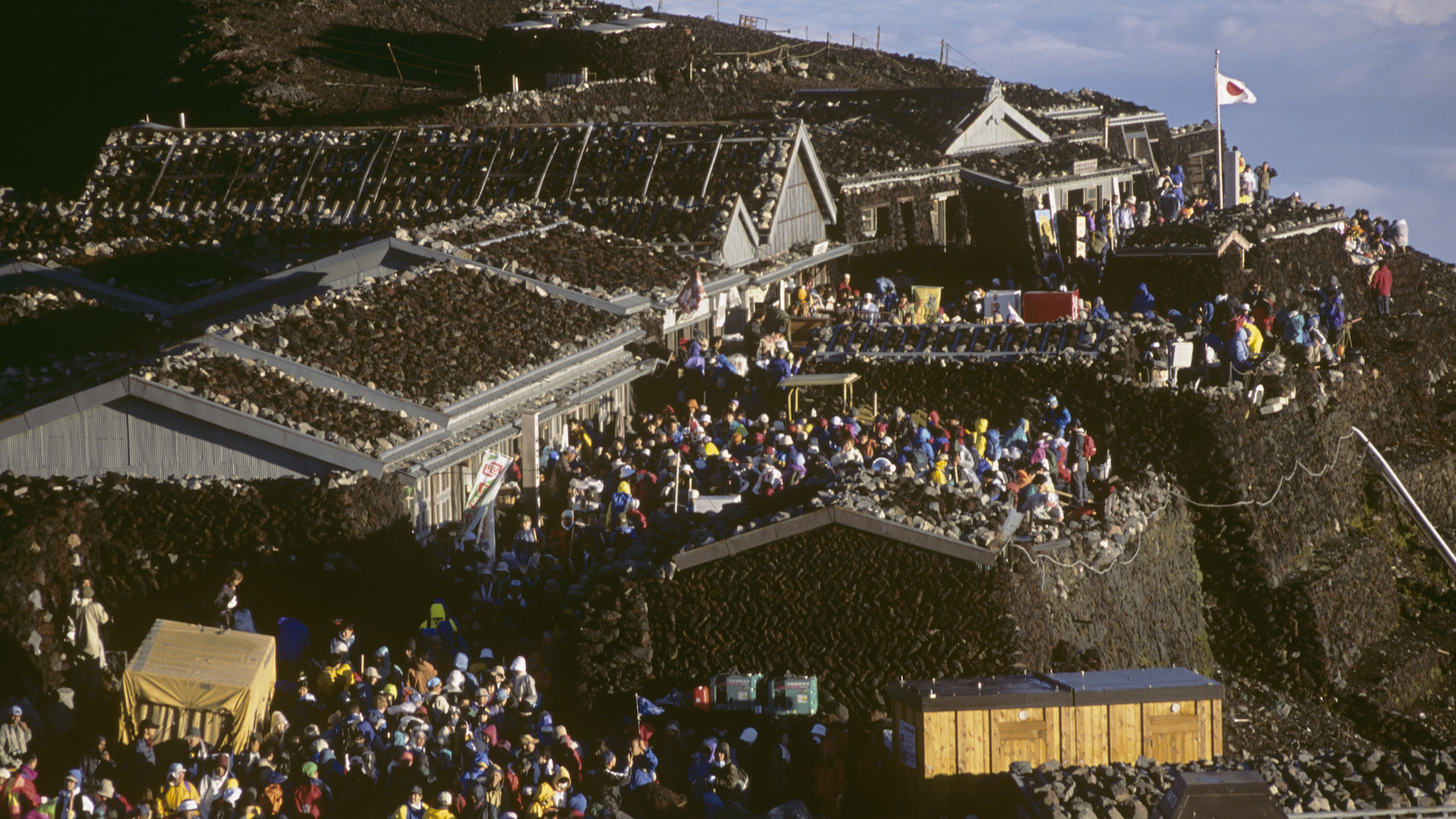
From this July onwards, hikers in Japan won’t be able to turn up at the base of Mount Fuji and start ascending the mountain for free. And if they don’t arrive early enough, they may not be allowed to climb it at all.
Japan’s Yamanashi prefectural government has announced that it will be introducing both a toll and a daily limit on the number of individuals permitted to climb the sacred mountain, situated about 60 miles (100km) from Tokyo.
These measures are primarily designed to alleviate congestion on the mountain’s popular Yoshida Trail on its northern side, which has witnessed a surge in visitor numbers, leading to problems with discarded trail trash and injuries among inexperienced climbers, both exacerbated by limited facilities at the summit. They also want to discourage inexperienced climbers attempting rapid ascents without proper rest.

In 2023, a total of 221,322 climbers made their way up Mount Fuji, with 137,236 of them (that’s 62%) choosing the Yoshida Trail.
Money raised by the toll will be used to build shelters for use in the event of a volcanic eruption, and for maintaining the hiking routes. Climbers and hikers will also be banned from starting an ascent between 4pm and 2am.
The number of hikers allowed on the trail per day will be capped at 4,000, while the exact level of the toll will be announced by the Yamanashi prefectural government in February. The toll and climber limit will commence on July 1, 2024, which marks the beginning of the mountain’s 70-day summer climbing season.
Mount Fuji, standing at 12,388 feet (3,776m), achieved UNESCO World Heritage Site status in 2013. It straddles the Yamanashi and Shizuoka prefectures of central Honshu on the Pacific side of the country’s largest island, Honshu.
- The best men’s ski pants 2024: trousers for all skiers and boarders







